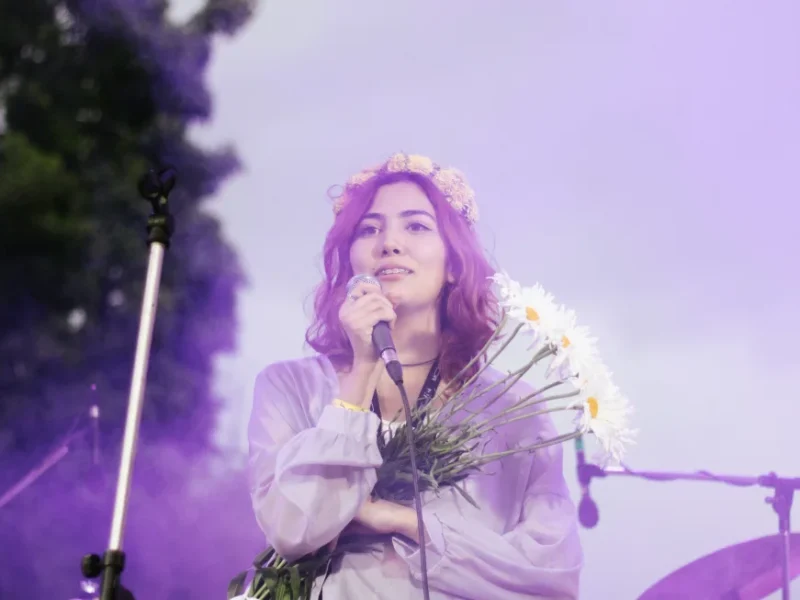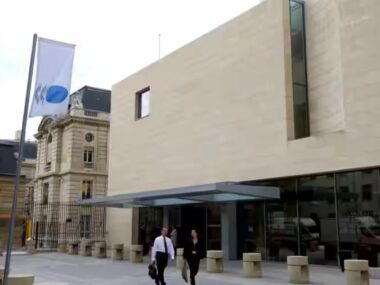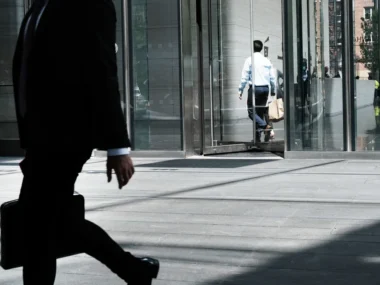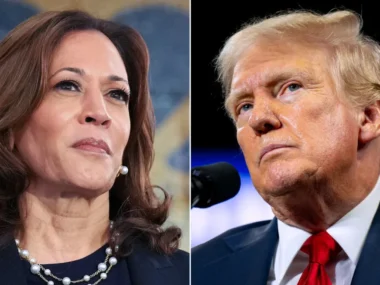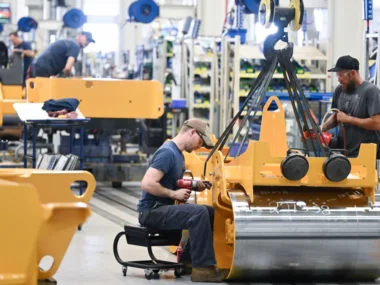Uzbekistan, traditionally focused on agriculture and manufacturing, is seeing growth in its creative sector due to a younger, dynamic population and government investment. The new State Art Museum in Tashkent aims to be Central Asia’s largest art space.
Odil Mukhamedov, 26, founded the creative community Moc in 2019 to provide a platform for artists and creatives. He recognized the lack of local opportunities and wanted to retain young talent by fostering a supportive environment.
Following the end of Islam Karimov’s 25-year presidency in 2016, Uzbekistan has pursued reforms to boost economic and political openness, including promoting creative industries as part of these efforts.

A young audience assembled for an outdoor show at Mocfest, Uzbekistan’s growing arts and music festival held in Tashkent.
The Moc collective organizes independent arts festivals across Uzbekistan, including an electronic music event in the Aral Sea desert and the Mocfest in Tashkent from August 23 to 25. This year’s Mocfest showcases emerging talent in music, art, cuisine, and environmentalism.
Odil Mukhamedov notes that as Uzbekistan’s economy grows, it’s a prime moment for young creatives to assert themselves. With 40% of the population under 25, young Uzbeks are using social media to reach global audiences.
Social media star Asal Saparbaeva, also known as Littos, has gained widespread recognition with her extreme sports and unique Uzbek style. She and her husband, Yaroslav Nikolenko, created their social media company during the pandemic, producing frequent content without language barriers to attract a global audience.
Saparbaeva, known for her acrobatic performances and advocacy for women in sports, believes social media provides valuable self-expression opportunities. She emphasizes that while traditional schooling can be restrictive, the internet offers freedom for learning and creativity.
“Still at the beginning”
In Tashkent, the Human House Gallery has supported local artists for over 20 years. Founder Lola Saifi notes significant changes in Uzbekistan over the past five years, with easier business operations and reduced bureaucracy. However, she feels the creative economy is still emerging, and the state often overlooks its potential compared to traditional sectors.
Despite official support for major projects, grassroots financial aid remains scarce, though the sector could be a key economic contributor. Saifi argues that the creative sector can drive tax revenue and opportunities, particularly in remote areas.
The upcoming Fourth World Conference on Creative Economy in October reflects growing mainstream recognition. Since President Shavkat Mirziyoyev’s 2016 leadership, Uzbekistan has welcomed foreign investment and tourism, a shift from previous regimes. While freedom of expression is still a concern, Mukhamedov remains optimistic about the role of young creatives in advancing the economy.

